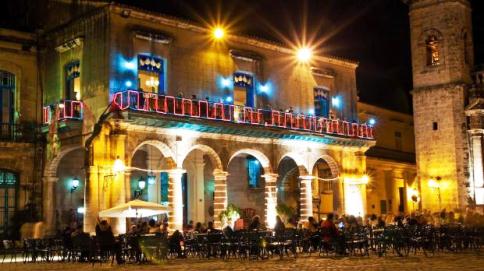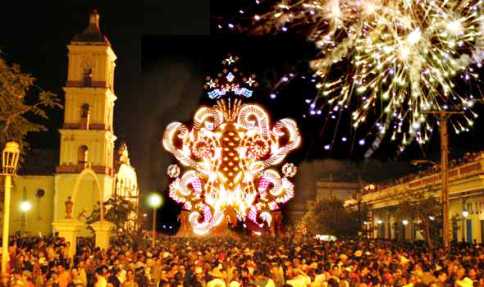
Christmas or Nochebuena in Cuba used to be a big celebration. Families gathered and shared a special “Cena de Navidad” at 9:00 pm. After dinner, the Catholic population -almost the entire island – attended Misa de Gallo or mass of the rooster at midnight. The “Cena de Navidad” or Christmas dinner in Cuba included beans, plantains, rice, “mojo” which is a type of marinade with onions, garlic, and sour orange, and pork as the main dish.
Desserts like “turrones” or nougats, “buñuelos” or fritters, and others made of tropical fruits like coconut, guava, and sweet potato were very common at Christmas dinner. Nuts like “avellanas” or hazelnuts and tropical fruits were also part of the dinner. Beverages like “sidra” or cider, “Mojitos” a drink made of rum, sugar cane juice, lime, carbonated water and mint, were the main alcoholic drinks for the night.
After Castro declared the country atheist and removed Christmas from the calendar, the significance of Christmas faded. It was almost non-existent on the island until the arrival of the Pope John Paul II in 1996. Castro declared Christmas a national holiday that year as an unprecedented gesture of goodwill in honor of Pope John Paul II’s visit. After the Pope’s visit, Castro recognized the holiday again but it still remains a very low key celebration.
After the visit from the pope, Christmas in Cuba became more festive but nothing like it used to be. Also churches, which normally carry and explain many of the traditions during Christmas, are stranded for money. On Christmas day in Cuba children attend school and shops, restaurants and markets stay open for regular business.
Christmas in Cuba includes a special dinner made of roasted pork, plantains, beans and rice. The hotels serve the same menu while entertaining tourists with music, games, and shows where national athletes participate. Priests celebrate mass in churches and designated places like cathedrals or “plazas,” the most popular is Havana’s Revolution Square. Churches ring their bells to mark the moment of Christmas Eve becoming Christmas day.


